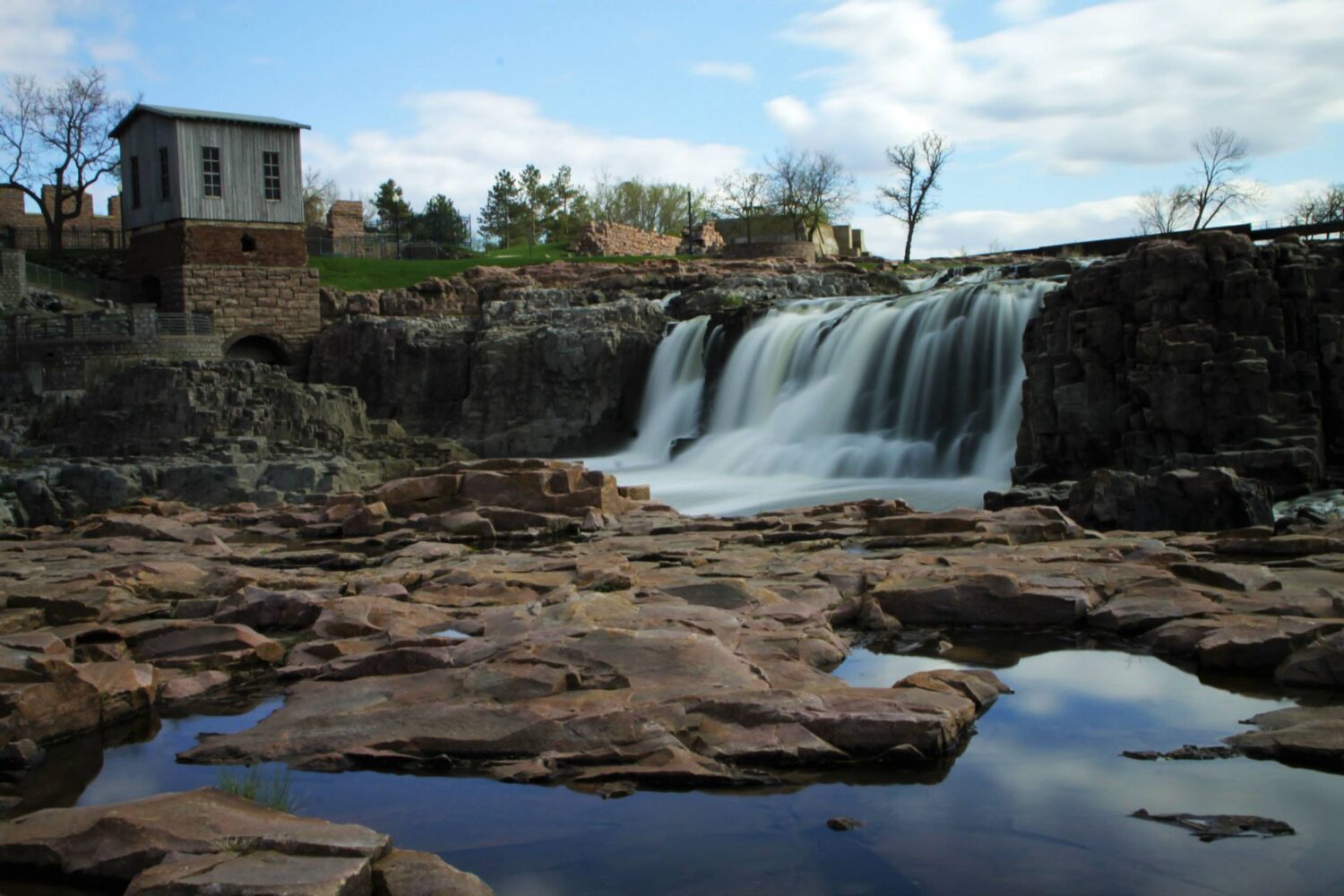
Makenzie Huber/South Dakota Searchlight – A newly formed coalition is encouraging more conversation around sustainability efforts and policy in Sioux Falls and South Dakota.
The Sioux Falls Sustainability Coalition is made up of already established organizations in South Dakota, including environmental groups SoDak350, Citizens’ Climate Lobby (which has chapters in Sioux Falls and Rapid City) and Dakota Rural Action, as well as Common Grounds Indivisible and Change Agents of SD.
The groups came together in response to Sioux Falls’ revised sustainability plan released in March — which was less specific and actionable than the original plan — and the city’s decision to not seek federal funding to reduce greenhouse gases and other pollution.
Sioux Falls is regarded as a leader in South Dakota, said SoDak350’s Arlene Brandt-Jenson during a Thursday press conference, “but we’re not leading.”
Several other communities across the United States have established sustainability plans, including a joint plan between Black Hills State University and Spearfish.
South Dakota was one of four states to decline federal funding for pollution reduction efforts. Rapid City did accept funding from the federal government.
“We can’t just sit by and do nothing, so we’re going to have these conversations,” Brandt-Jenson said. “… We are way behind. Just the fact that the biggest city in South Dakota has no real sustainability plan as a policy for our city is something to take note of.”
The coalition’s next effort is a community conversation on climate and sustainability at 8:45 a.m. on Dec. 2 at Our Savior’s Lutheran Church in Sioux Falls. The two-and-a-half hour event will allow residents to speak with each other, ask questions and hear from experts in the field, including South Dakota Climatologist Laura Edwards and University of South Dakota professor in sustainability Meghann Jarchow.
While the coalition formed as a political reaction, the event is not political, said Rick Knobe, former Sioux Falls mayor and member of Change Agents of SD.
“All politics are local, so it all starts right here,” Knobe said. “The more people who are speaking up and acting, the more our elected officials are paying attention to that.”
